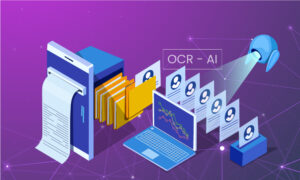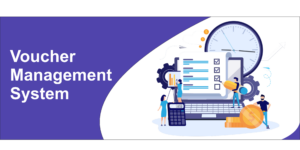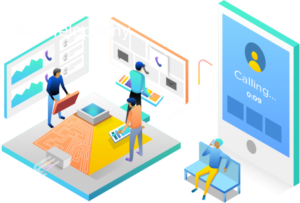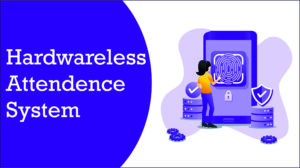
Artifical Intelligence in Procure to Pay
We did optical character recognition (OCR) to extract information from scanned invoices using Artificial Intelligence (AI)

Digital Transformation involves leveraging computer related technologies to improve or change traditional, non-digital business processes and services. It is a digital-first approach to processes and operations. It could range from scanning and digitising records and documents for storage, to AI, automation, and cloud based technologies, that involve data driven, intelligent workflows.
With digital transformation, an organisation moves from paper trails and manpower driven systems, to computer based and automated systems.
Customer is the primary driver for any business. As new digital technologies have emerged, it has transformed the way we do business. Customers are expecting all organisations to make it easy for them to decide what they choose. Some technologies that have revolutionised our world are:
Companies that were able to adopt these technologies were able to grow exponentially. Two examples are Netflix and Amazon. They used technology to:
Ultimately digital transformation is needed to simplify how companies work, while matching ever evolving customer expectations.
Technologies that help us achieve digital transformation:
Mobiles have become an essential part of our daily lives. Users check them whenever they have any free time. They have them by their side, day and night. So, mobiles have increasingly become important devices for both work and personal life. With the advent and widespread use of mobile devices, companies have to relook their strategies for presence on the web, or the technologies that they use in their processes. For example, delivery personnel need delivery mobile apps, Uber drivers and customers use mobile for navigation and trip selections, most people in cities now search/buy most products using their mobile phones. Companies that do not keep pace with the changing lifestyles will be left behind.
As the customer has changed the way they buy products and services, the way they are marketed and sold has also evolved. Traditional methods of media and marketing are giving way to digital marketing and social media. It’s the age of Google search, SEO, Facebook, Twitter, LinkedIn, Instagram, Tik Tok, to name a few. So, it becomes essential for a company to focus on these channels and invest in campaigns that improve their visibility and popularity.
AI (Artificial Intelligence) is an intelligent computer program. Put simply, AI is a field of computer science with robust datasets, that strives to problem solve, and make decisions, like humans, or better than them. AI learns from examples and continuously improves itself. Automation involves building technology that minimises human dependence and input. Together, AI and automation make processes and operations intelligent, with real time decision making abilities.
In a hybrid cloud setup, applications are running in a combination of different environments. It integrates on-premise infrastructure, public and private cloud resources. By using hybrid cloud, the organisation is not dependent on a single vendor. Yet, they have a single system for running each workload. This makes such a setup resilient, agile and scalable – ideal for digital transformation.
Microservices are a cloud-native application architecture in which a single application consists of many loosely coupled and independently deployable smaller components, or services. Agile and DevOps methodologies in conjunction with microservices, allow code to be updated more quickly and easily, which means quicker bug-fix, and feature updates. The Components can be worked on and scaled independently, reducing the time and money involved in scaling the entire application at one time. This allows organisations to deploy services and products multiple times in a single day.
Digitisation is the conversion of paper based records into data stored on computers and in databases. Digitising is a component of digital transformation in every industry. It is also a pillar of transformation in education, healthcare, banking and government.
DigitalFlake is a digital transformation company founded by engineers to help businesses benefit from emerging technologies. The company has worked with startups and established firms across various verticals, helping them build enterprise-scale apps to drive operational efficiency and meet business objectives

We did optical character recognition (OCR) to extract information from scanned invoices using Artificial Intelligence (AI)


Two wheeler servicing company needed help building an expense management system to organise vendors, vouchers and invoices in a customised solution.


Client faced problems tracking old and new customer calls. We provided an automated solution for tracking and mapping outgoing calls and incoming leads


A hardware-less solution for an e-commerce company having problems tracking fleet attendance, using executive’s smartphone, GPS location, and facial recognition.


Copyright © 2021 | Powered by Digitalflake